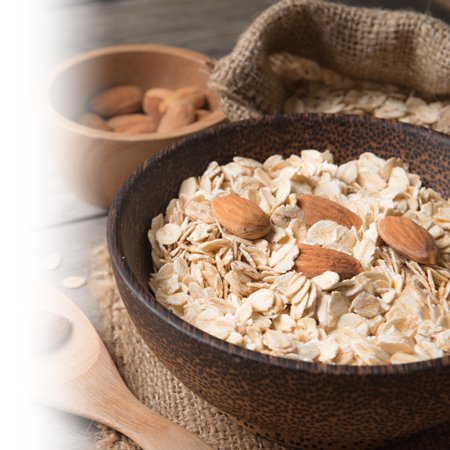Inconvenienced by constipation? Simple actions, like exercising more and taking in more fibre and water could provide relief.
Is it really constipation?
Many people complain of constipation, but is this really always the cause? This is an important question. Not everyone has a bowel movement every day. The normal range of frequency is between three times a day to three times a week.
Constipation can be defined as difficult bowel movements. It can be manifested by a decreased frequency (less than three times a week), stools that are hard and dry, or small stools that leave a sensation of incomplete evacuation. Constipation can be occasional (pregnancy, travel, hospitalization, etc.) or chronic.
What causes constipation?
Many factors can promote constipation:
- a diet low in fibre
- insufficient water consumption
- sedentariness or a lack of physical activity
- taking certain drugs (side effects)
- overuse of laxatives
- Certain illnesses (e.g., irritable bowel syndrome or hypothyroidism)
- pregnancy, and
- stress
- etc.
Speak to your pharmacist if you think your constipation problem might be caused by a drug you are taking.
How to prevent constipation
Certain lifestyle changes can prevent constipation and even treat existing constipation.
- Increase your fibre intake
Eat more fibre-rich foods. Fibre is divided into two categories: insoluble fibre, which helps to prevent constipation, and soluble fibre, which helps to maintain normal cholesterol and sugar levels.
A daily consumption of about 25g to 38g is recommended, according to age and gender. Most Canadians consume less than half of the recommended amount, so don't worry about consuming too much of it! However, increasing fibre intake too quickly can cause abdominal discomfort, bloating, flatulence or diarrhea, so do it gradually.
Here are some examples of fibre-rich foods:
- porridge
- cereal or whole wheat bread
- green beans (cooked)
- lentils
- prunes
- raspberries
- oranges
- green peas
- avocado
- artichoke
- carrots
- almonds, and
- peanuts
- Drink more water
You must also proportionally increase your fluid intake, which comes from both beverages and foods that you consume during the day. The required amount varies according to age, gender, and lifestyle.
A total daily consumption of 2 to 3 litres of water or other fluids is usually recommended. Without an adequate fluid intake, fibre can form a blockage and promote constipation. Water is the best drink for your body and health. Drink plenty of it and avoid drinks that are less likely to offer the nutrients your body needs (soft drinks, for example).
Warning: if you suffer from renal or heart failure, it may be inadvisable to increase your fluid consumption. Speak to your doctor about it.
- Increase physical activity
Physical activity promotes intestinal transit. Several types of exercises are effective. For example, a daily 30-minute walk can stimulate the intestines as well as provide a number of other health benefits. Cycling, swimming, and dancing are also good choices.
- Maintain good defecation habits
When you need to go to the toilet, your body lets you know it. Be attentive to these signs and avoid delaying the time to alleviate this basic need due a lack of time or some other reason. Try to make it a habit of going to the toilet at regular hours (for example, after your morning cup of coffee), and of not holding it in, which only makes constipation worse.
What are the treatments?
If applying the above-mentioned recommended measures does not eliminate constipation, there are certain treatments available to provide relief.
First, you can use over-the-counter fibre supplements available at the pharmacy. You will have to drink plenty of water to ensure the supplements' effectiveness, and increase the dose gradually to avoid adverse effects, such as diarrhea. It may take several days before you see a difference.
Fibre comes from a natural source and provides other health benefits. Speak to your pharmacist for additional details.
There is also a wide range of products to prevent and relieve constipation, most of which are provided over-the-counter. They come in various formats: powder, liquid, capsules, tablets, suppositories, enemas, etc. It may be risky to use them without speaking to a healthcare professional first. Always speak to a pharmacist before purchasing this type of product. He/she can also help you to determine if a medical visit is necessary.
Speak to your pharmacist for additional information about constipation, its prevention and its treatments.

